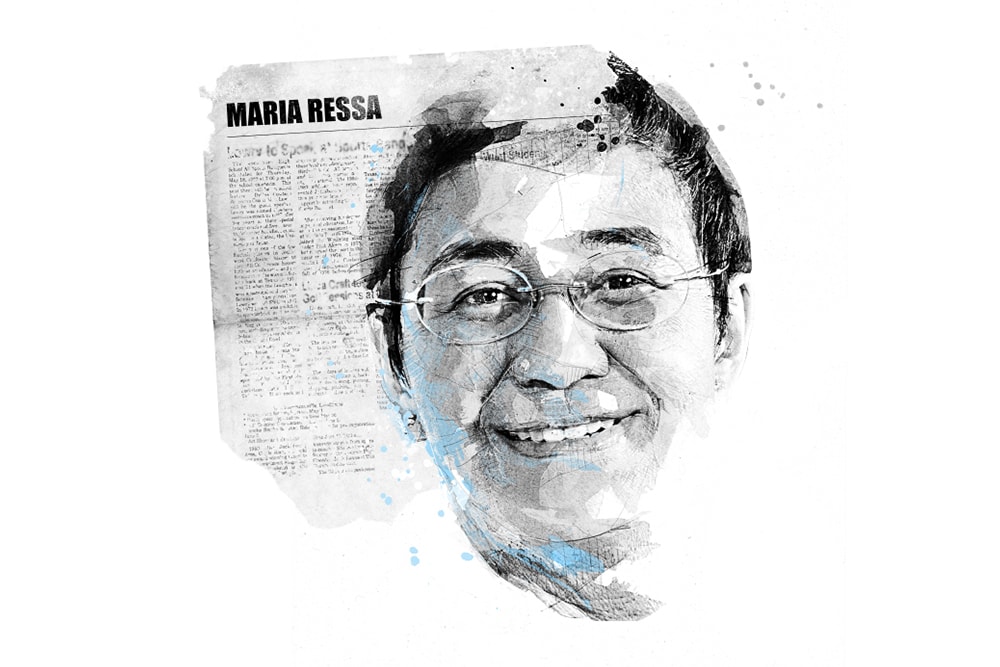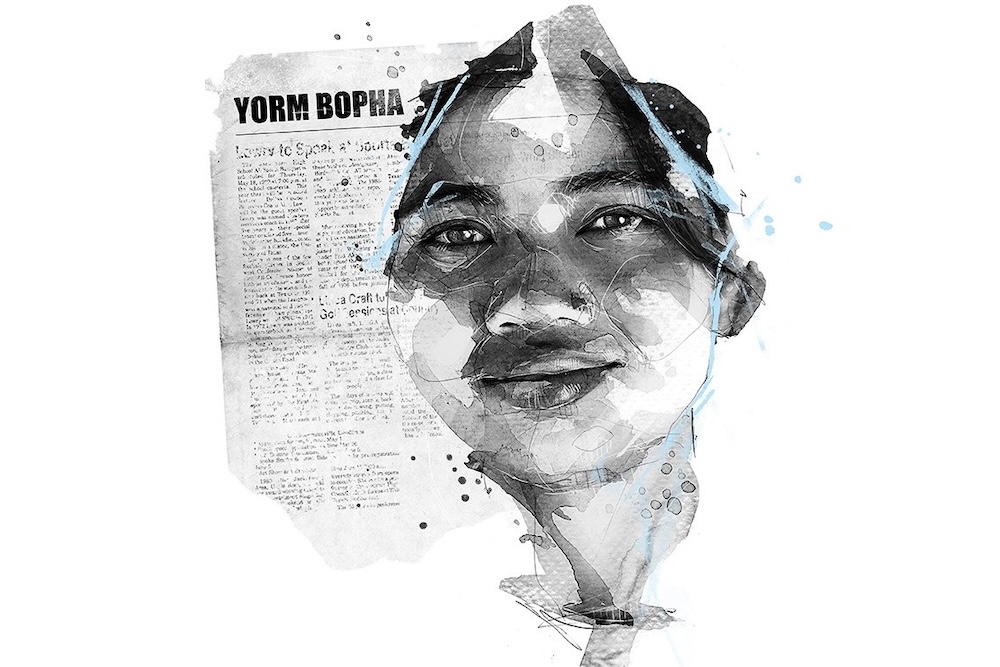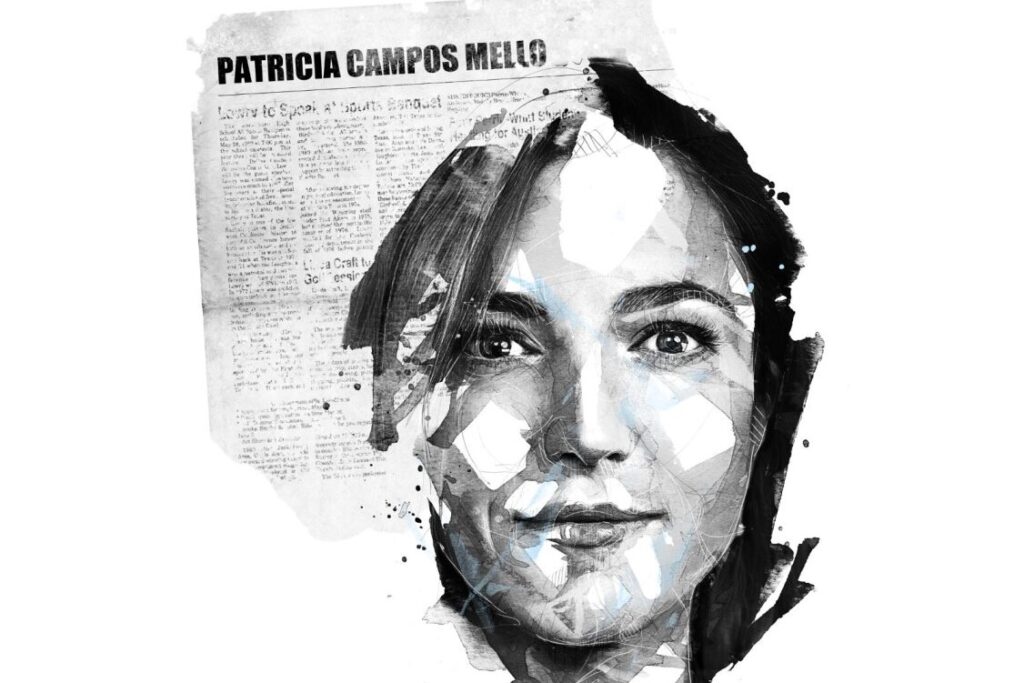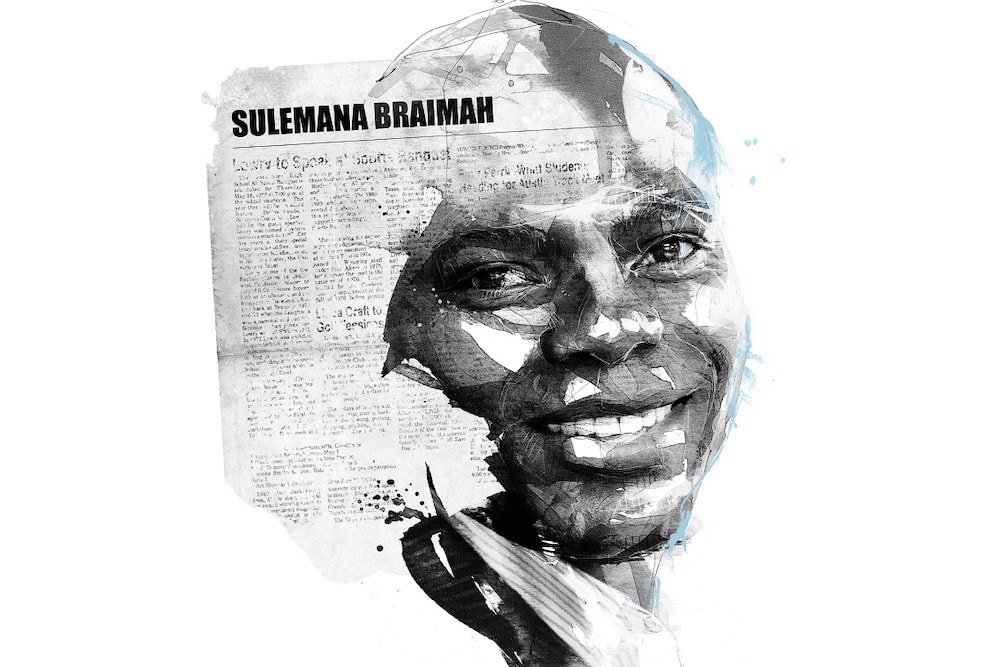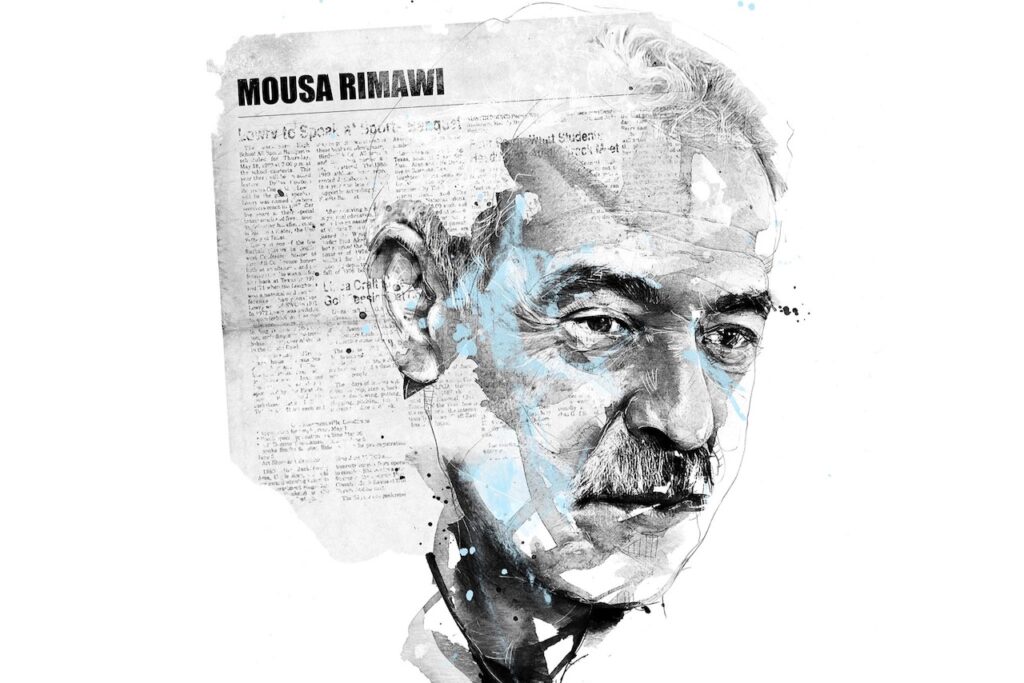With a growing number of lawsuits filed by the Duterte government against her, growing international recognition, and a growing list of international awards including the 2021 Nobel Peace Prize, the Filipino-American co-founder of the news platform "Rappler" has become a global icon of resistance to state interference in the media.
“We are journalists, and we will not be intimidated. We will shine the light. We will hold the line.”
Maria Ressa is truly a force to be reckoned with. She has worked as a journalist for over three decades; work which has brought her to numerous war zones and newsrooms across Southeast Asia. She has reported on the spread of terrorism in Asia, drug killings in the Philippines, and the weaponization of social media – at great personal risk.
Her response to these risks, which have included state-backed attacks, has always been to inspire courage among colleagues: “We are journalists, and we will not be intimidated. We will shine the light. We will hold the line.”
Together with Russian journalist Dmitry Muratov, she was awarded the 2021 Nobel Peace Prize which underscores the role of independent media outlets in challenging authoritarian regimes.
Ressa spent her early years in the Philippines, before her family migrated to the United States when Martial Law was imposed by the late dictator Ferdinand Marcos.
She did not initially plan to become a journalist. At Princeton, she majored in English with certificates in theatre and dance, and was a pre-med student. But when she returned to the Philippines on a Fulbright scholarship in 1986, to rekindle her roots, it was against the tumultuous backdrop of the massive “People Power” uprising, when over a million people took to the streets to oust Ferdinand Marcos from power.
The Princetonian theatre student had found her “real-life political theatre” in the Philippines – but she was already looking for something more, noting in a 2015 interview that “political theatre here was very agitprop and very personalistic. It didn’t satisfy me.”
Deciding to embark instead on the first steps of her career in journalism, she worked as a freelancer for CNN in Manila before becoming its bureau chief, a post she held from 1987 to 1995. She then headed to Jakarta, from 1995 to 2005 – a turbulent period for Indonesia which witnessed the 1998 downfall of dictator Suharto and the independence of Timor-Leste in 1999.
“When people are trying to run away, you’re trying to find your way in. I was a conflict reporter, I worked in war zones.”
She has shared some of her experiences as a war correspondent in two books: “Seeds of Terror: An Eyewitness Account of al-Qaeda’s Newest Center of Operations in Southeast Asia” (2003), and “From Bin Laden to Facebook: 10 Days of Abduction, 10 Years of Terrorism” (2013).
In an interview with Recode Decode, Ressa recalled how her work in journalism began. “I walked into a television station, and I learned journalism by doing it. It was amazing. We started this little startup before it was called a startup. We just called it an independent production house, Probe. That is still alive today.” In fact, Probe pioneered the use of documentary features in news reports in the Philippines.
From 2005 to 2011 Ressa headed the news and current affairs division of ABS-CBN, the biggest media network in the Philippines. Then, together with three fellow female journalists, she formed the Rappler news website, in 2012.
The word “Rappler” is a combination of the word “rap” (to talk or discuss) and “ripple” (to make waves). Ressa explained that Rappler wanted to build “communities of action” by combining mobile technology and journalism. It introduced the use of a “mood meter” to gauge the emotional reaction of readers to the content. Over the years, it became one of the leading news websites in the Philippines, pioneering the extensive use of multimedia, and partnering with Facebook as a fact-checker for local content in a campaign against disinformation.
Since its inception, Rappler has taken seriously the mission of journalism to “speak truth to power,” despite the risks involved.
In 2015, Ressa interviewed then presidential candidate Rodrigo Duterte, who admitted to having killed three people as mayor of the southern Philippine city of Davao. Duterte would become president the following year and unleash a bloody “war on drugs”. Rappler and other major media networks worked to expose the horrific human rights violations that took place with impunity under the Duterte government. In 2016 they published a three-part series detailing the weaponization of the internet aimed at silencing Duterte’s critics. In 2018 they produced the award-winning series “Murder in Manila”.
Those who speak truth to power often find themselves being targeted in turn. Duterte accused Rappler of peddling lies, and being foreign-owned. He barred its reporters from entering the presidential palace, and he called Ressa a “fraud”. Rappler’s incorporation papers were eventually revoked by the government, just one aspect of what became a comprehensive campaign of judicial harassment against the outlet, and against Ressa personally.
Rappler and Ressa were slapped with 11 charges related to tax evasion, illegal foreign ownership, libel, and cyber libel – all filed since Duterte came to power in 2016.
Ressa spent one day in detention on 13 February 2019 in connection to the cyber libel complaint of a businessman for a Rappler article published in 2012. The allegedly libelous article was published when the bill criminalizing cyber libel was not yet signed into law. Furthermore, Ressa did not write the article, but was charged as CEO and executive editor of Rappler.
Nevertheless, Ressa was found guilty by a Manila court in June 2020, a ruling which prompted the formation of a large coalition of local and international press freedom and civil society organisations to defend her. Ressa has since appealed her conviction, and continues to face other pending cases which prevent her from leaving the country without posting bail.
“I’m a cautionary tale for journalists who talk too much and who question too much. That doesn’t mean I’m going to change who I am. That’s our job, and as long as our constitution holds, we’ll continue exercising these rights,” Ressa remarked in an interview with The Daily Princetonian.
The same troll armies spreading vitriol and disinformation that Ressa exposed in 2016 were used to attack her and Rappler. At one point, she was receiving, on average, 90 personal hate messages every hour in her email and social media accounts.
As she said in 2017, the intent is clear. “They attack your physicality, your sexuality. When you are denigrated, and stripped of dignity in this way, how can you maintain your credibility? All of these things work together for a single purpose and that’s to prevent journalists from doing their jobs.”
Ressa has written extensively about the strategy of “using half-truths that fabricate an alternative reality by merging the power of bots and fake accounts on social media to manipulate real people.”
She has warned about its impact on journalists and journalism. “This rapid re-engineering of reality happened on Facebook, where the tools of our profession were turned against us to incite hate, create straw enemies, build alternative realities.”
She met Facebook executives in Singapore and Silicon Valley, and presented data about how the popular social media platform is being weaponized by an army of state-sponsored cyber trolls. She pressed for accountability.
“We need to hold tech platforms to account. They need to move away from just business growth … they are now the world’s largest distributor of news so they have to take on the responsibilities journalists had as gatekeepers. They cannot allow lies to spread. They need to protect the public interest … and the public sphere where democracy happens.”
Ressa’s cyber libel conviction is a powerful illustration of the decline of media freedom in the Philippines under the Duterte government. Aside from persecuting critical journalists, the government forced the shutdown of ABS-CBN, the country’s largest TV and radio network, in 2020, depriving millions of vital information during a pandemic. Duterte also signed a draconian Anti-Terror Law which could be used to harass and even criminalize the work of the independent media.
Ressa thinks the Philippines is at the “precipice” and that journalists have a crucial role to play in defending democracy.
“There’s no better time to be a journalist in the Philippines than today, because this fight matters, and the mission of journalism has never been as necessary as it is now.”
Faced with threats of arrests and insidious state reprisals, Ressa remains defiant. In her speech at the 2018 award ceremonies of the World Association of Newspapers and News Publishers, she made that perfectly clear.
“You don’t really know who you are until you’re forced to fight to defend it…. We at Rappler decided that when we look back at this moment a decade from now, we will have done everything we could: we did not duck, we did not hide…. My name is Maria Ressa. We are Rappler, and we will hold the line.”
In 2023, Ressa and Rappler were acquitted in five tax-related charges filed against them by the Duterte government. Meanwhile, Ressa’s cyber libel conviction appeal is still pending in the Supreme Court.
Ahead of her 2024 commencement speech at Harvard University, Ressa warned about how the toxic mix of money and power can lead to vicious information operations. “The goal isn’t to make you believe one thing. The goal is to make you disbelieve everything, to make you doubt everything, to make you distrust everything, because if you do, then you don’t do anything.”
She posed this challenge to the graduating class of 2024: “Make it a world that is safe from fascists and tyrants…This is about what we can do together, to find what binds us together. Our world on fire, needs you! So. Class of 2024. Welcome to the battlefield. Join us.”
Awards
Ressa’s fight against impunity in the Philippines and her advocacy to defend journalism amid the ‘broken information ecosystem’ have won her many accolades.
- In November 2017 she received the National Democratic Institute’s Democracy Award.
- She was Time magazine’s Person of the Year in 2018, one of several journalist “Guardians” in the “War on Truth.” This made her the second Filipino to receive the title after former President Cory Aquino in 1986. Time recognized Ressa’s work as a journalist “through a superstorm of the two most formidable forces in the information universe: social media and a populist President with authoritarian inclinations.”
- She received the 2018 Knight International Journalism award. In her speech, she said, “We battle impunity from the Philippine government and from Facebook. Both seed violence, fear, and lies that poison our democracy.”
- She was the recipient of the Golden Pen of Freedom award given by the World Association of Newspapers and News Publishers in June 2018.
- In November 2018, the Committee to Protect Journalists awarded Ressa with the Gwen Ifill Press Freedom Award in “recognition of her journalistic courage in the face of persistent official harassment.”
- In April 2019, she was included in Time’s 100 Most Influential People in the World.
- In May 2019, Ressa won the Columbia Journalism Award from the Columbia University Graduate School of Journalism.
- In June 2019, Ressa received the Canadian Journalism Foundation’s Tribute honor.
- In October 2019, Ressa was named on the BBC’s list of 100 Women.
- On 25 September 2020, Ressa was named as one of the 25 members of the “Real Facebook Oversight Board”, an independent monitoring group over Facebook.
- On 8 October 2021, the Nobel Prize Committee announced that the 2021 Nobel Peace Prize was awarded to Ressa and Russian journalist Dmitry Muratov “for their efforts to safeguard freedom of expression”.
Illustration by Florian Nicolle
